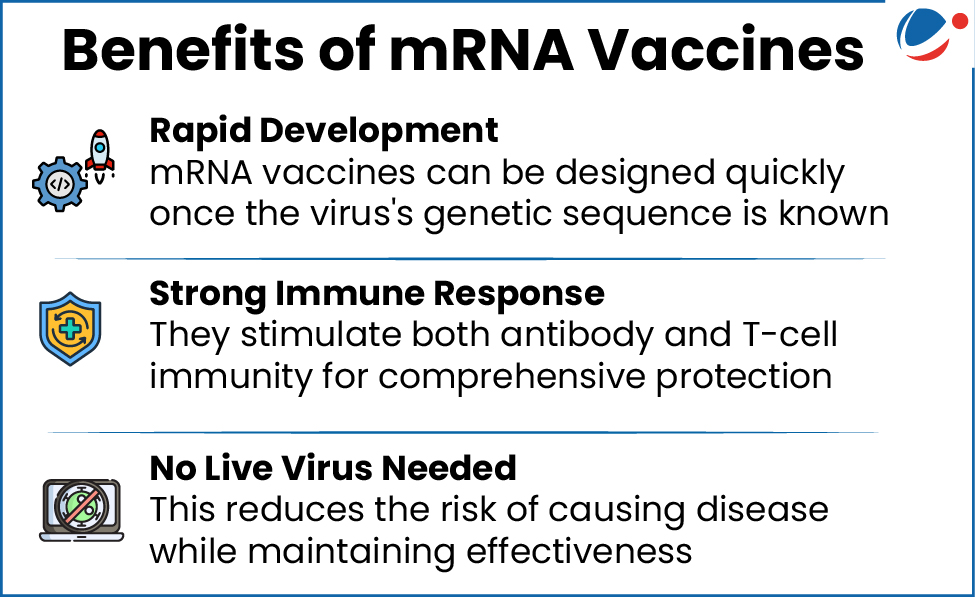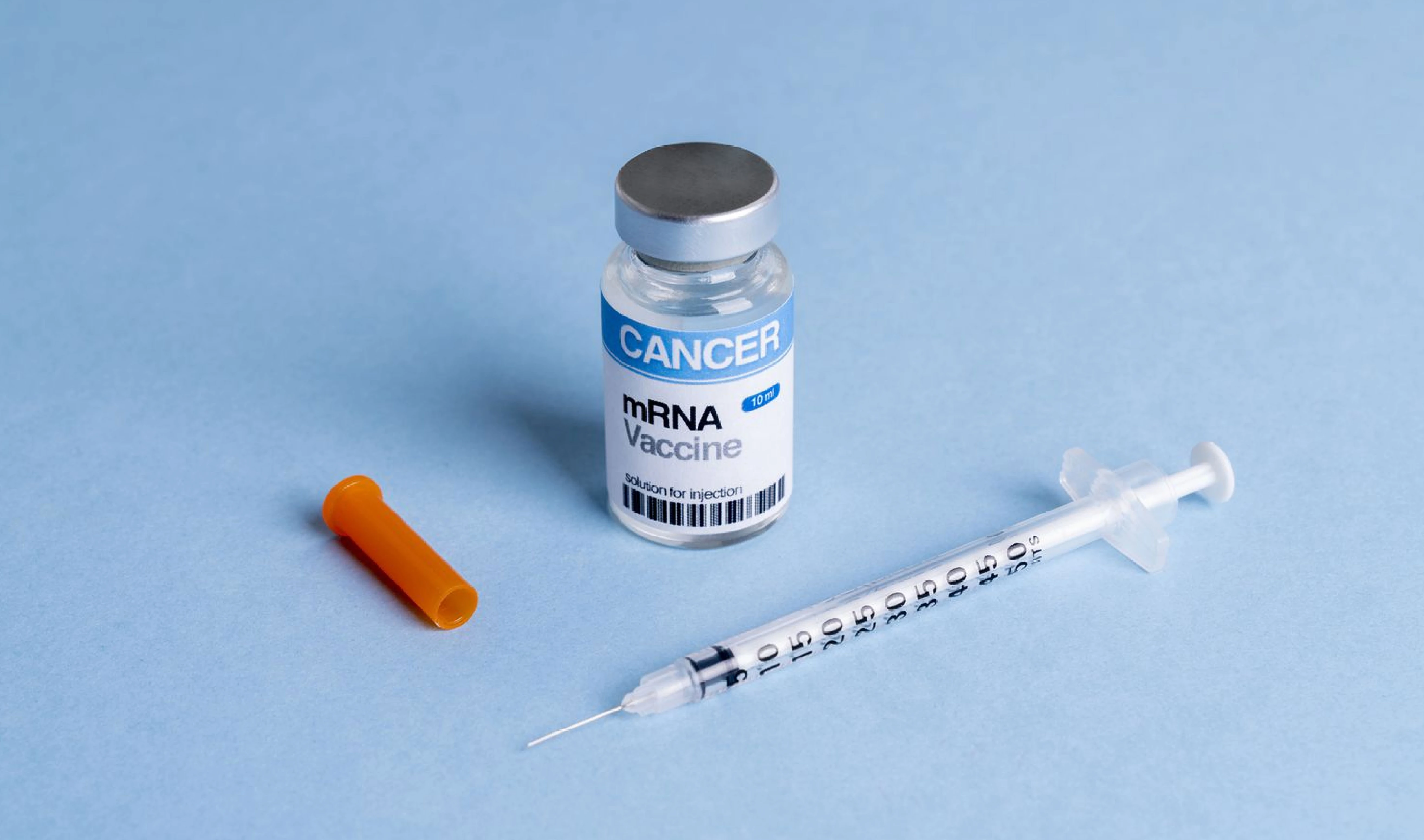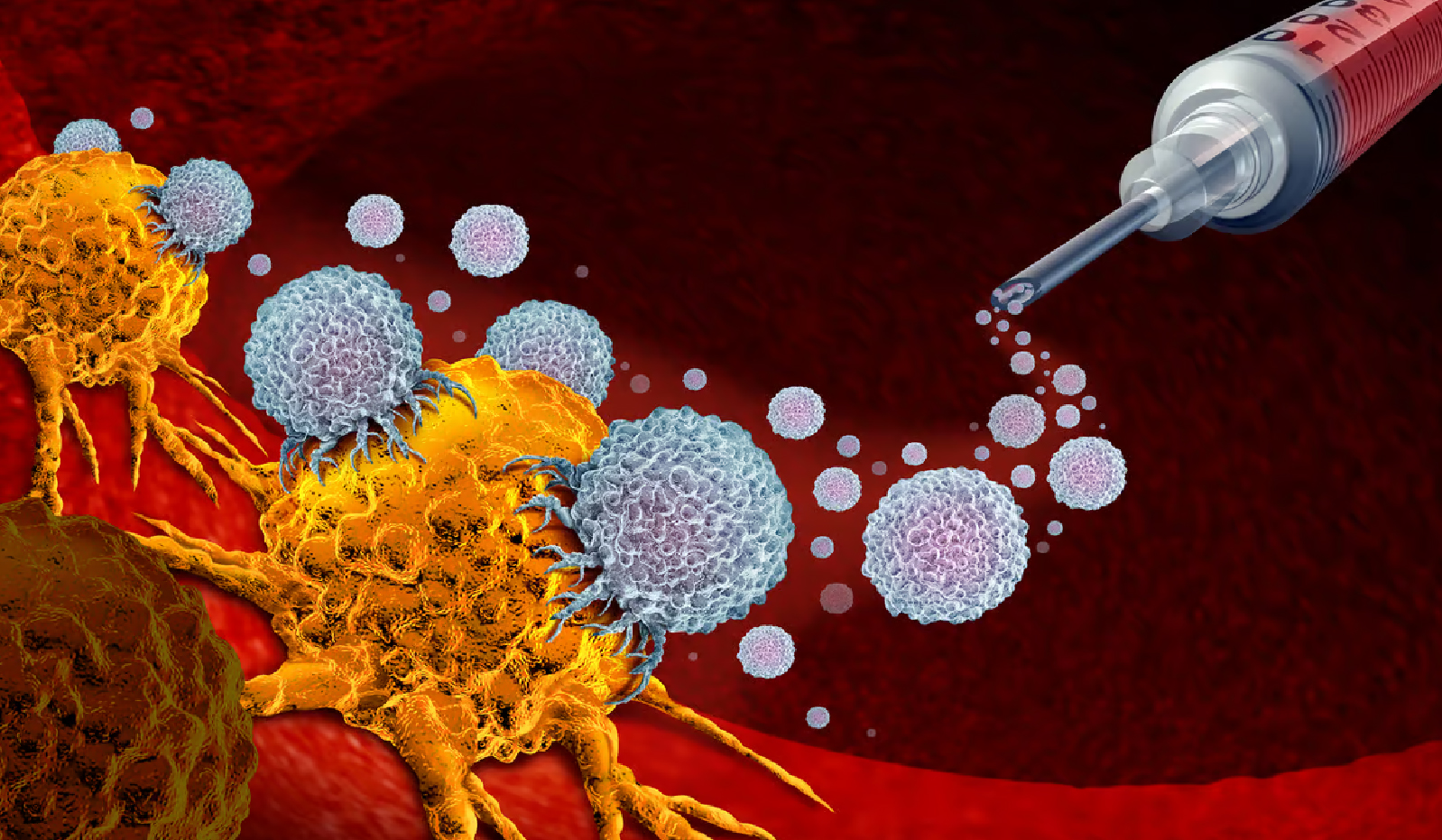It uses mRNA technology to stimulate immune responses against cancer.
- Initially targeting colorectal cancer, it is fully personalized, with each dose tailored to a patient’s tumor through mutation profiling.
About mRNA Vaccines
- mRNA vaccines are a type of vaccine that use a small piece of messenger RNA (mRNA) to instruct our cells to produce a protein specific to a virus.
- mRNA (messenger Ribonucleic Acid) is a genetic molecule that contains instructions or recipe that directs cells to make a protein using its natural machinery.

- mRNA delivers genetic material, encapsulated in lipid nanoparticles, into body to prompt protein production that match up with parts of pathogen called antigens.
- E.g., the mRNA vaccine for COVID-19 directed cells to produce copies of a protein on the outside of the coronavirus known as the spike protein.
- Immune system sees these foreign antigens as invaders, dispatching defenders called antibodies and T-cells and training immune system for potential future attacks.
Challenges of mRNA vaccines:
- Storage requirements: Require ultra-cold storage, making distribution difficult.
- Short-term side effects: E.g. fever, fatigue, and soreness at the injection site.
- Long-term safety: mRNA vaccines are relatively new, so long-term effects are still being studied.






